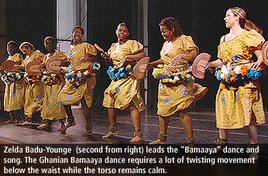We live in a world of finite resources. I'm not sure at what time we started feeling that we can spend it all anyhow, and that it'll keep coming. The U.S. as a nation is wasteful as they come. The wastefulness is included in the culture; the children of the U.S. do not learn how to conserve resources. Most people do not think about where their next meal, or electricity or clean water would come from; and as long as they have money and can afford amenity, it means it has to be used.
But the truth is that our resources will not last forever. There needs to be a drive for conservation. Those that have, must leave some for their children. At the same time, there is a need to extend the resources to those that do not have it. The sad part is that there is a nice chunk of people around the world do not have the necessary resources for survival. For them, electricity has come very few times if at all, water does not come through a faucet, but rather from a river.
But the truth is that our resources will not last forever. There needs to be a drive for conservation. Those that have, must leave some for their children. At the same time, there is a need to extend the resources to those that do not have it. The sad part is that there is a nice chunk of people around the world do not have the necessary resources for survival. For them, electricity has come very few times if at all, water does not come through a faucet, but rather from a river.
It is sometimes very difficult for those of us on the outside to really comprehend how bad the problem is. When I was growing up, I was mostly in the city, where we received most of our water from natural water bodies; the water was of course purified before it made it to our homes. Electricity came from the dam on a lake and therefore, if we had seasons of drought, the electricity coorporation rationed the electricity, sometimes by street or by towns (e.g. street A would have electricity Monday, Wednesday, Friday and Sunday, and street B would have electricity Tuesday, Thursday, Saturday and Sunday). Water sort of worked the same way.
Now those in the rural areas had a different scene all together. In my 6th grade, I was in a cadet corp and we got to plant 1000 trees in a rural area outside the city. We camped in one of the schools (because mosquitoes and small rodents do not really allow for tents and proper camping). We brought a huge tank to provide us with water; and we had to get the water from a spring in the neighborhood. There was no electricity in the area, so we used flashlights and created a huge bonfire. The bathroom at the school was actually a latrine and none of us could stomach the smell or the sights enough to use it, which meant that nature became our natural bathroom. Our shower, well, we had to get water from a river and we took our 'shower' in a huge pineapple plantation that was sort of blocked off. It made quite an impression on us, the suburb children.
Now up the street from our campsite, was a huge mansion that belonged to a foreigner (we'll call her the white lady). She had water that came to her faucet and she also had a fully functioning toilet. We stored our seedlings in her huge compound before planting them.
I had this image in mind during our last class, because I have experienced the water and sanitation problem. It is imperative that when we get into the field, we examine all facets of the problem with the society with which we're working. For example, the little town where we camped could get access to clean water and even electricity as was demonstrated by one mansion having such access. But it takes initiative and the locals believing that they also deserve such amenities. We have a huge battle up ahead and it is important to be armed with all the right information.







